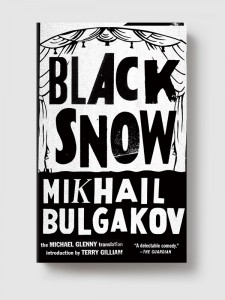What a remarkable lady!
Last night I saw Margaret Atwood at the Rialto. One can't always be sure what one is going to get when an author makes an appearance; expectations aren't always properly set*, and so much depends on the author's personality, the venue, the crowd's energy. Chances were good this would be good. But Atwood was brilliant. I think she must always be brilliant. (I
have seen her before, and she's always been brilliant.)
*I made the trek last week to see Chris Hadfield, but was disappointed to find it was a signing only — no reading, no musical number, no magic tricks I mean science experiments, just some dumb astronaut signing your book, I mean oh my gawd I shook an astronaut's hand and his handshake is so firm and he signed my book! But you see my point, I hope.
She started off singing, a hymn from
The Year of the Flood. She is by no means an extraordinary singer, but she sings just fine, loud and proud. She actually sang! And cracked that some people really do tell her to keep her day job.
And she read, from
MaddAddam, the recently released third book in the speculative trilogy that began with
Oryx and Crake. I only started reading the book a few days ago, and in a happy coincidence, she read the section that I had just arrived at (she read pages 106 to 109).
And then she talked. With the very personable Sheila Heti (whose work I have not read, but I intend to someday). That's them in the picture above. (Really.) They chatted (well, mostly Peggy chatted, while Sheila prompted) about the power of storytelling, and what parts of the brain light up when engaging in narrative, indicating that it's a basic thing in humans, along with language, music, rhythm, not like algebra or reading for that matter.
Also edible body products (when the apocalypse comes, go to the spa), cats (everyone knows that one of the most useful things to do for a migraine is to put a purring cat on your head; science has yet to figure out how to keep it there), the future (and extrapolating toward it), Menippean satire (but the world is moving so fast, satire has to push farther to keep up), the Amazon drones (if she'd included that technology back in the day of
Oryx and Crake, it would've been considered beyond belief), Archie comics, Northrop Frye, origin stories and the tendency to mythologize (which comic books and science fiction are particularly great at). And other stuff.
Oh, right, and a bit about the book: how God's Gardeners mix scripture, nature, and science with imperfect results; the nature of the Crakers (in their society there would never be a book by Sheila Heti called
Women in Clothes); why Jimmy is reluctant to share his story — he cannot envisage a reader — contrasted with Toby, who can, which is hopeful.
She entertained questions from the audience: She advised against hallucinogens as a writing aid, affirmed that social media is good for literacy (citing
Smarter Than You Think), commented on Rob Ford (Toronto is paying for its great sin of puffed-uppedness), and scoffed at the idea of writing exercises (you mean like summer camp? let's pretend to be a triangle).
Also she said some smart things about the control (or lack thereof) the author has over the reader. You never know who your readers are going to be. A reader doesn't want to see Austen pulling the puppet strings; the reader would much rather sit and listen to Mr. Darcy. As for authors connecting with their audiences, well, isn't that what the book is for?
And she signed my book! (Which I must hurry up and finish reading this week.)
Check out
Margaret Atwood's website; it will lead you to new and interesting places. Also, know that there's a MaddAddam app, the game
Intestinal Parasites (which I'm downloading this very minute).








